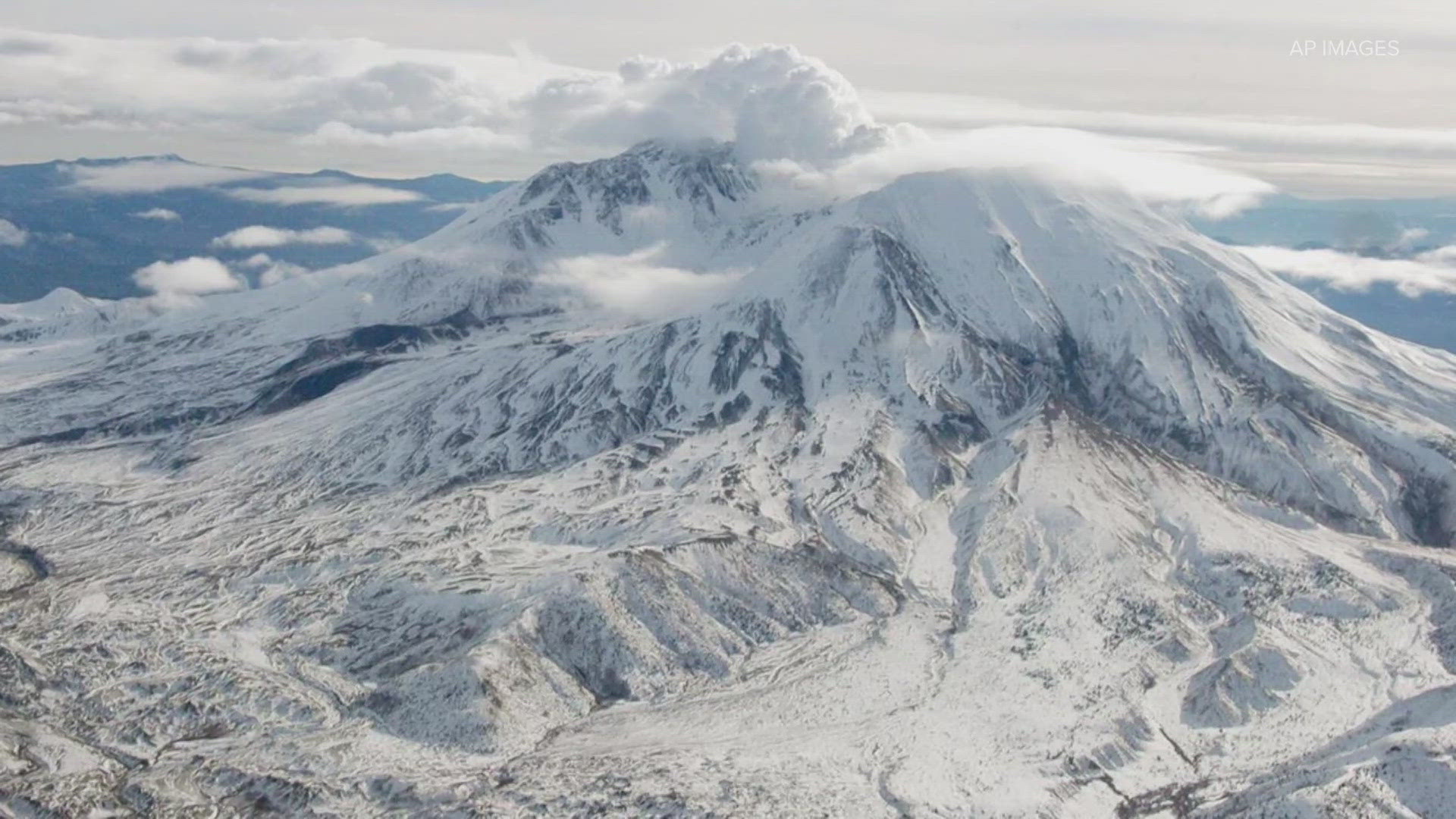SKAMANIA COUNTY, Wash. — Hundreds of small-magnitude earthquakes registered below Mount St. Helens could indicate that the volcano is going through "recharge" - a process where additional magma accumulates below the volcano.
Between Feb. 1 and early June, the United States Geological Survey (USGS) registered 350 earthquakes occurring at a median depth of 3.5 miles below sea level. The vast majority of the earthquakes have been below a magnitude 1.0, which is too small to be registered on the surface. The largest earthquake registered at a magnitude 2.0 on May 31.
The number of earthquakes has also recently reached a peak - with 38 events per week in June.
The USGS emphasized that this increase in activity does not indicate any increased threat or danger associated with the mountain.
Recharge has been observed in the past at Mount St. Helens.
The mountain is the most seismically active volcano in the Cascade Range and is thought to be the most likely of the U.S. volcanoes to erupt in the future. The 1980 eruption is considered the most destructive in the history of the United States, according to the USGS - it is also the deadliest.
The mountain erupted again in 2008, which resulted in regularly spaced patterns of small earthquakes, dubbed "drumbeat" earthquakes, that accompanied a "steady eruption of lava spines as they emerged from the Mount St. Helens conduit," according to the USGS.
The USGS and the Pacific Northwest Seismic Network continue to monitor the mountain for activity. There have been no other changes observed at other volcanoes in the Cascade Range.

